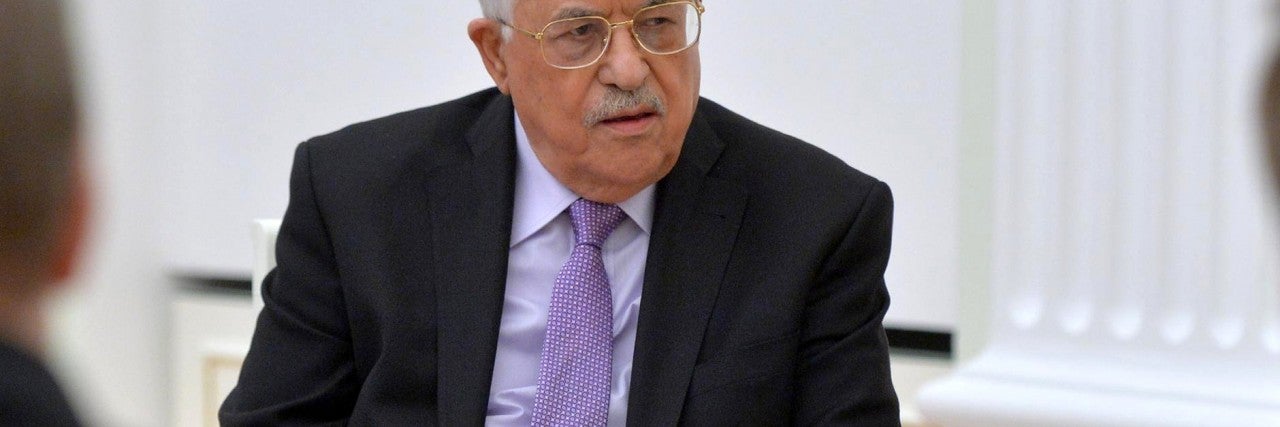December 29, 2017 — Jerusalem
By Eran Lerman
In the wake of President Trump's decision on Jerusalem, the Palestinian leadership promptly decided to "fire" the American mediator – and pretend to look for alternatives – which the Russians, the Chinese, even the Japanese, seem eager to provide if possible. The Palestinians have adamantly and aggressively rejected any further attempts by the U.S. team to discuss, in advance, the possible aspects of the much-anticipated American blueprint for peace. Instead, Mahmoud Abbas has reverted to the tactics he used almost four years ago, when he walked away from the talks conducted by Secretary of State John Kerry.
In advance of his decisive meeting with President Obama at the White House on March 17, 2014, Abbas had made up his mind to follow the advice of Saeb Erekat and go for the option of "internationalizing" the conflict. This has meant a strategy of seeking an imposed solution through the coercive powers of the UN and other institutions, which would presumably give the Palestinians "their full rights” rather than accept the ugly and painful compromise which is bound to emerge at the negotiating table. Now Abbas is once again threatening to join a long list of international organizations – even if this would mean that under American law such UN agencies will no longer enjoy the funding they now receive from the U.S. budget.
This is not necessarily the worst choice Abbas could make. The famous quote (some say, misquote) from Winston Churchill, "it is always better to jaw-jaw than to war-war," surely holds in this case. There are plenty of warlike urges around, given the weekly Friday demonstrations and the regular violent clashes with the IDF in the outskirts of Palestinian cities. Pressure for more drastic action is building up within Abbas's own Fatah movement. The Palestinian economy is doing poorly, despite some pockets of prosperity such as Rawabi, and internal tensions are deeply felt among the young. With Hamas holding on to its big guns in Gaza – not much is left of the ambitious "reconciliation" process – and some renegade radicals firing their rockets intermittently into Israel, it is not easy for Abbas to simply sit idle in Ramallah. The Arab world did little beyond verbiage and the Palestinians are driven to take action on their own.
The option of aggressive diplomacy (some overwrought Israelis have spoken of "diplomatic terrorism") is a way of letting off steam under these circumstances. Abbas long ago – in fact, back in 2002 – came to the conclusion that Arafat's return to the armed struggle, the so-called second Intifada, was a disaster. Thus, for him, the internationalization "project" has its intrinsic utility, helping him control the urge to opt for arms.
Still, at the same time, this is an exercise in utter futility – at least in terms of what may or may not bring the Palestinians closer to the goal of independence in the context of the two-state solution. (It is an open question whether the Palestinian leadership actually wants to get there, or are they rather happy to remain the world's wards and the ever-bitter victims of someone else's iniquity). The argument that this is for them a better way to achieve an acceptable outcome rests on faulty assumptions every step of the way.
To begin with, it will not necessarily serve their interests to turn the "peace process" from a businesslike transaction into a court of law, with Israel being indicted for her crimes. No side in this story is free of blemish, but surely the means chosen in the past by the Palestinian national movement make it vulnerable to such judgement. Moreover, Israel can advance strong claims – based on the original League of Nations Mandate – to establish sovereignty between the river and the sea. This was set aside for years, so as to leave room for a practical compromise when the day comes, but if forced into legalities Israel would have some of her own to put forward.
Moreover, despite the resounding (but ultimately meaningless) vote at the UN General Assembly, the world is not really likely to do much by way of coercing Israel into submission. In fact, 2017 has been one of the most remarkable since 1948 in terms of Israel's relations worldwide, and more is already scheduled for January 2018, both bilaterally (with India, a nation of 1.25 billion) and multilaterally (the fourth summit meeting between Netanyahu, Alexis Tsipras of Greece and Nikos Anastasiades of Cyprus). There are no indications that the Palestinians are gaining ground in their efforts to isolate Israel, and, in any case, real action can be taken by the UN Security Council only if the U.S. concurs – for the time being, the U.S. will be sure to veto. No concrete results will be achieved by such tactics.
Finally, within Israeli society, the idea of an imposed solution will be met in most cases by a shrug. Some on the hard left yearn for it, mistrusting the instincts of their own people and the political results of recent elections. But the broad majority cannot imagine a situation in which terrible action – forcibly evacuating some Jews from their homes, to make way for a rational border between two states – can ever be undertaken because of external pressure. Only an outcome which the majority of Israelis will come to see as equitable will be also implementable, and this can only happen at the negotiating table. It is thus to be hoped – as the American team does seem to hope – that after a prolonged cooling off period, and with enough steam dissipated by such diplomatic fireworks, the time will come for all to come back to their senses.
Eran Lerman is the former deputy for foreign policy and international affairs at the National Security Council in the Israeli Prime Minister's Office. Prior to that, he served as director of AJC Jerusalem.


